
Austria is a small landlocked country that is bordered by Germany (northwest), Czechia (north), Slovakia (northeast), Hungary (east), Slovenia and Italy (south), and Switzerland and Liechtenstein (west).
With a population of around 9 million the country has a history that dates back to pre-roman times.
Vienna
Before I get into the post proper there are two points that have jumped to the surface virtually straight away. Number One. We have massively underdone our timing for this place and will absolutely need to come back at some point. Number Two. One post is not enough for this city. As soon as we got to town and took a look at St. Stephens Cathedral we quickly realised that to do it justice this church warranted a post all on its own. Same goes for the palaces.
The first thing that struck us was the price. We can live again. Having left Switzerland where everything was obscenely priced, Vienna was quite reasonable, cheap even. Our beer price was cut in 3 and the food prices were similarly reasonable. Don’t get me wrong, we still probably paid back home prices for our meals, but we weren’t being anally probed every time we left our room.




Vienna has been called the “City of Music” as many famous classical musicians such as Schubert, Beethoven and Mozart called Vienna home. It was also home to Sigmund Freud (the world’s first psychoanalyst).
Vienna’s history dates back to the Roman era but most of what is there today came about under the rule of Empress Maria Theresia (1740 – 1780) and later Franz Joseph (1848 – 1916), who was largely responsible for the monumental architecture in the city’s centre.
St. Stephens Cathedral
This was the first sight that we visited and quickly realised that we were going to undercook this post. Originally built in the 1100’s and then further added to in the 1300’s this cathedral is phenomenal. Every wall, every aspect, every angle has a different story to tell. Built right in the heart of town, to say this place is popular would be an understatement.







The Hofburg Palace was the one time principal palace of the Habsburg dynasty. Smack Bang in the middle of town it was built in the 13th century and has been expanded several times since. Since 1946, it has been the official residence and workplace of the president of Austria.



Within the Hofburg Palace you can see the Imperial Apartments, the Sisi Museum, Imperial Treasury (with the crown of the Holy Roman Empire), State Hall of the National Library, the Spanish Riding School and the World Museum.
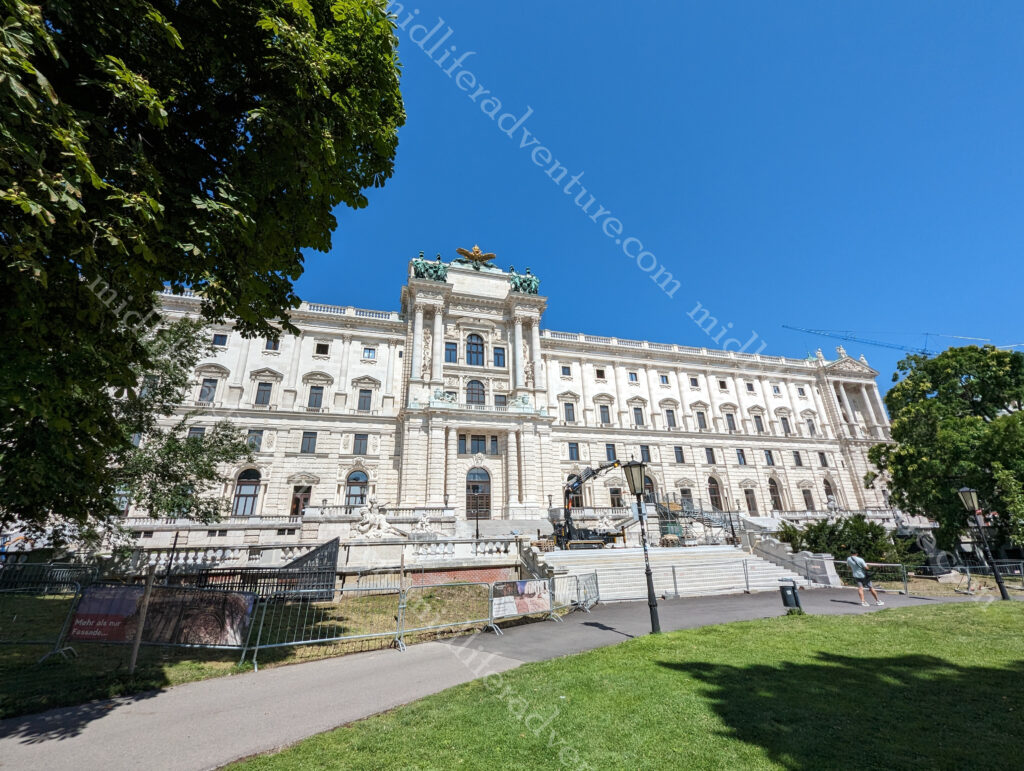
In front of the palace is the Heldenplatz or heroes square.
Also in the middle of everything is the Museum Quarter. This is a huge area with massively impressive buildings on all sides.


The Schönbrunn Palace (meaning “beautiful spring”) was the summer residence of the Hapsburg dynasty. The palace has 1441 rooms and vast gardens and is the most visited tourist destination in Vienna, and once again we undercooked out time and this could have been an entire post on its own.






The Ringstraße is a 5.3 km ring road that was designed by Emperor Franz Joseph to replace the old city walls. It was built in between the 1860s and 1890s. Some of the main buildings that occupy space on the Ringstrasse include: The Vienna State Opera, Academy of Fine Arts, Palace of Justice, Austrian Parliament Building, Rathaus (Town Hall), Burgtheater, University of Vienna, and Wiener Börse (Stock Exchange).
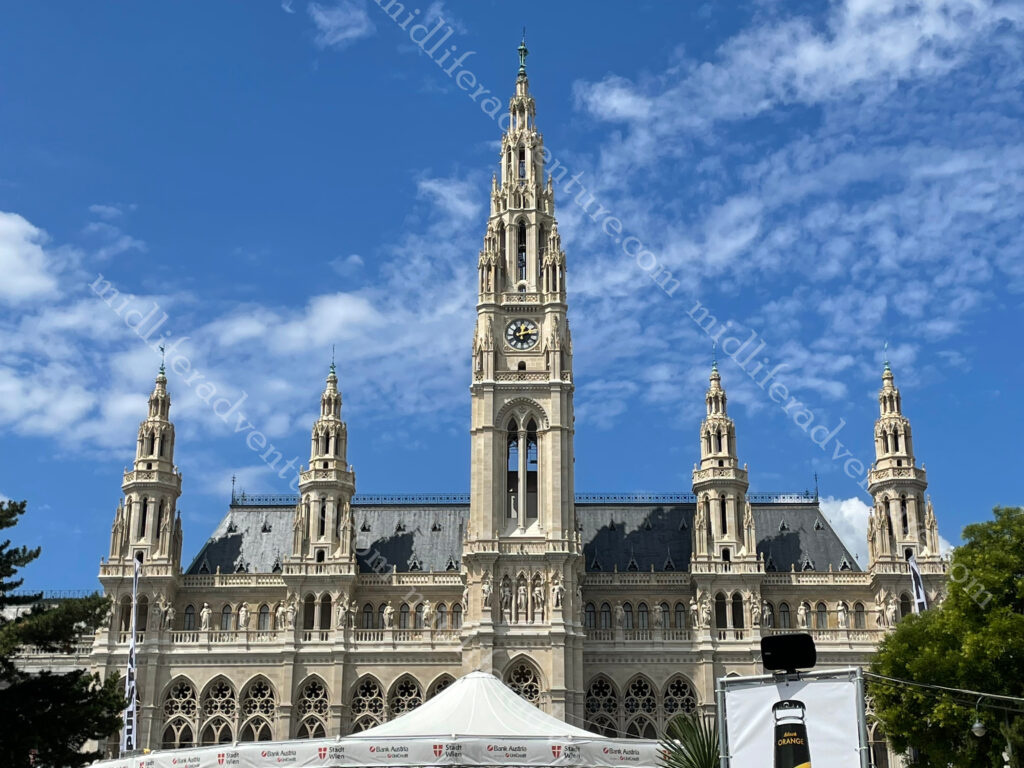
The Rathaus (City Hall) of Vienna was built between 1872 and 1883 in the gothic style, with a tower similar to cathedrals.
The Votive Church is a neo-Gothic church that was built and consecrated in 1879, on the day of the Silver Wedding of Emperor Franz Joseph and Empress Elisabeth.
It was apparently built as a token of gratitude after a failed attempt to assassinate Emperor Franz Joseph.
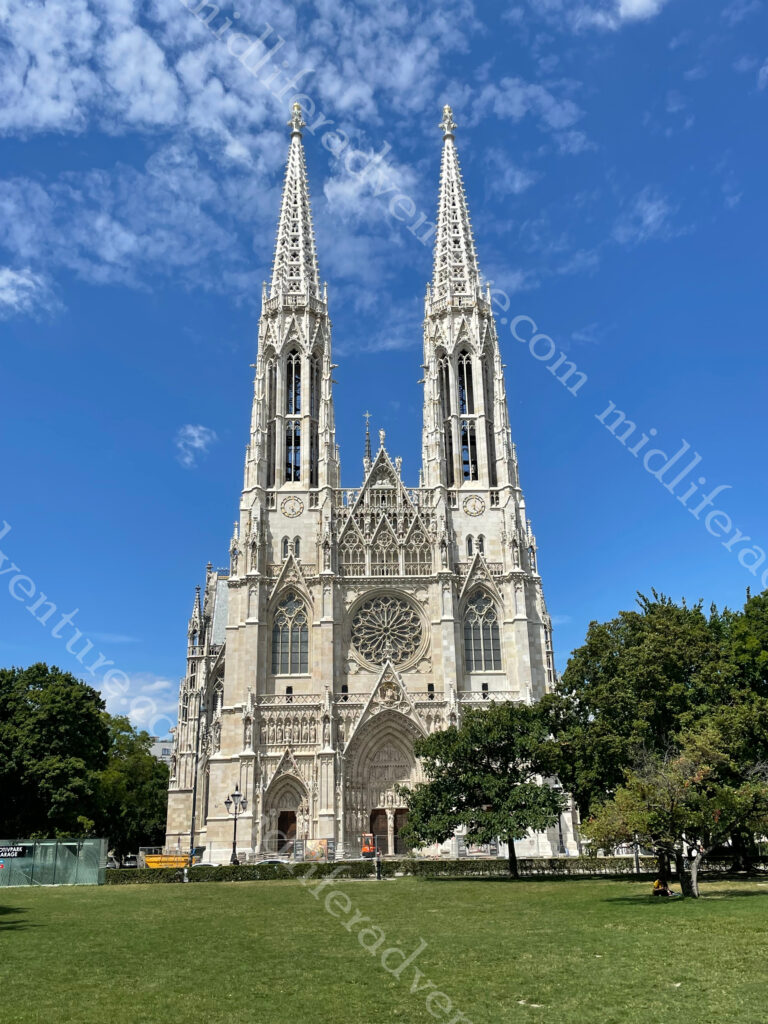
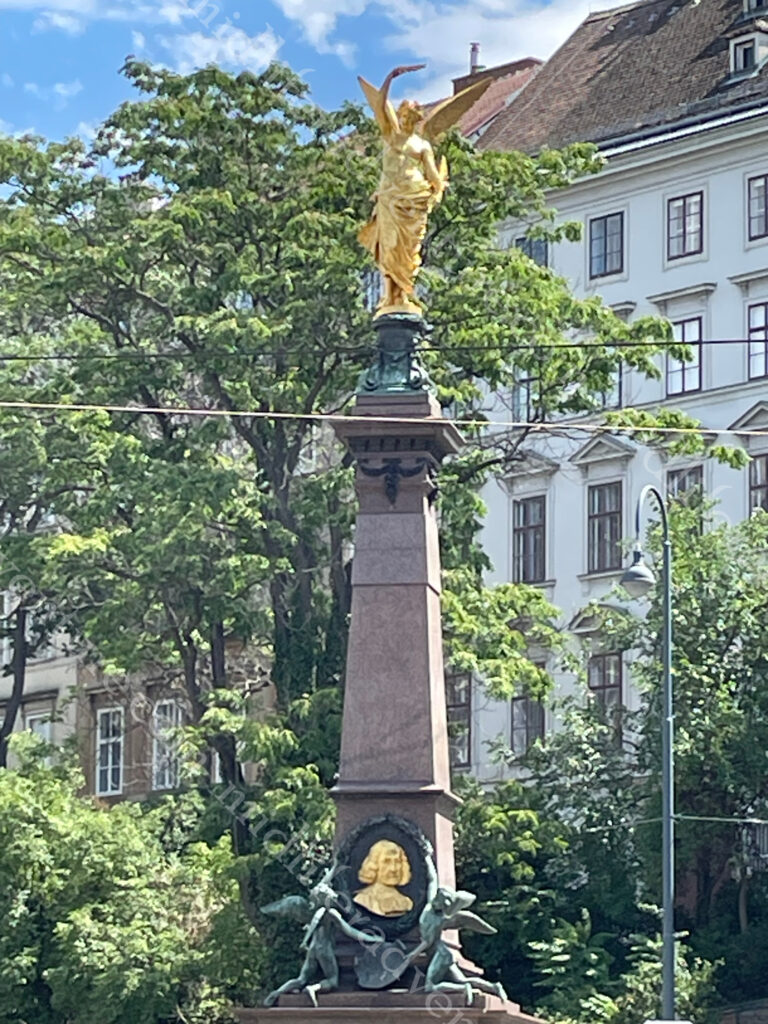
The Liebenberg Monument was made in 1887 to honour a civil servant dating back to the 1600’s.
It is a nine-meter tall red granite obelisk with the goddess of victory on the top and a portrait of Liebenberg with two angels and a life-sized bronze lion on the base.
Austrian Parliament Building was completed in 1883. It has over one hundred rooms including the Chambers of the National Council and the Federal Council.
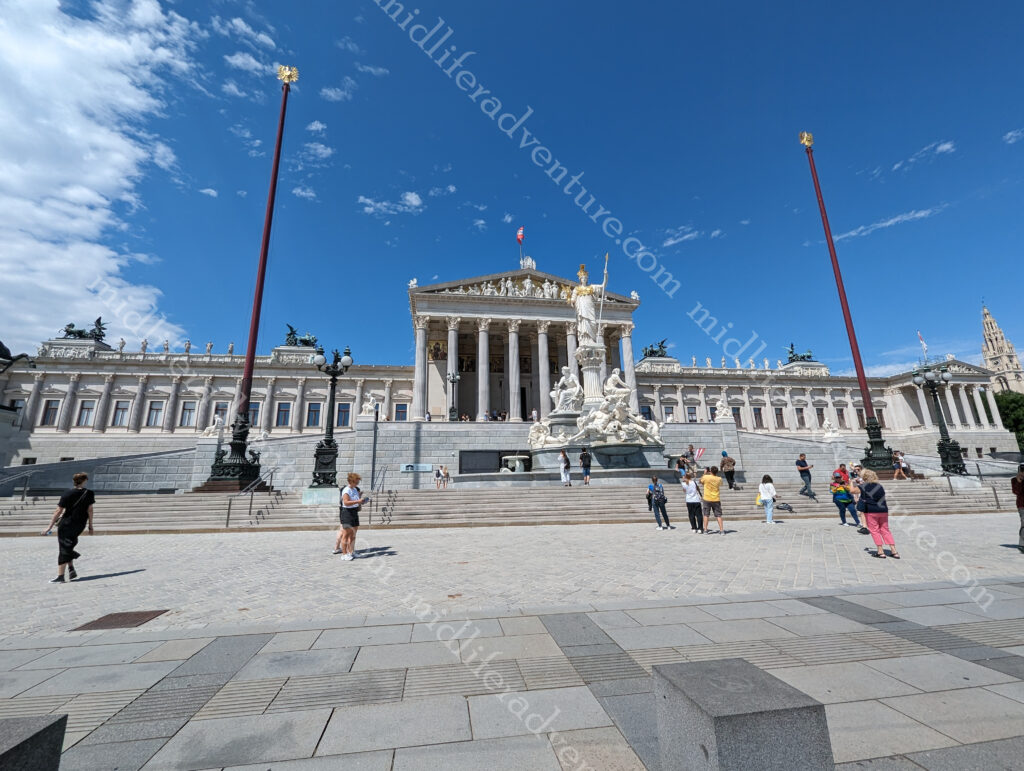
Belvedere Palace
This one we were unable to get to as time saw us way too pushed. But the Belvedere Palace was built as a summer residence for the prince Eugene of Savoy. The complex actually contains two Baroque palaces (the Upper and Lower Belvedere), the Orangery, and the Palace Stables. It is now home to an art museum


Long story short, Vienna was amazing, but we did not heave enough time to see all of the things that were on offer. I guess the worst part of that scenario is that we will have to come back and spend some more time exploring, more fully.







And on a final note, Vienna really knows how to put on a horse statue.